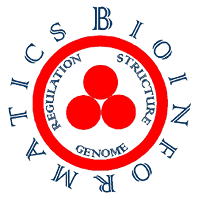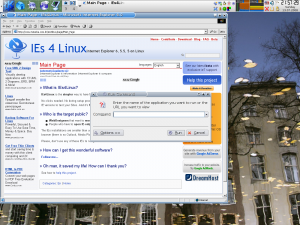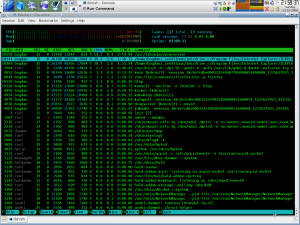 … was held on June 22-28, 2008, in Akademgorodok (Novosibirsk), Russia. It was the sixth conference held.
… was held on June 22-28, 2008, in Akademgorodok (Novosibirsk), Russia. It was the sixth conference held.
The International Conference on Bioinformatics of Genome Regulation and Structure is the bi-annual event. It features several bioinformatics sections, which IMO cover most of bioinformatics sub-fields.
The Sixth conference, BGRS-2008, was well-organized and had something to offer to everyone. By far the largest section was Genomics and Transcriptomics (at least if judging by the abstracts book and by the posters presented; talks given were distributed more equally between sections). As I did some work in genomics (namely, our COTRASIF tool), I had quite a load of info to digest, and many new potentially fruitful contacts to establish (which I did quite good).
The second section on my scale of priorities was “COMPUTER ANALYSIS AND IMAGE RECOGNITION IN SYSTEMS BIOLOGY”, which had several interesting researches presented in the field of spatial/developmental modelling. There was a very good talk on model reduction (with an actual example) for the purposes of both comparing different models and decreasing the model complexity without sacrificing model-predicted outcomes.
As for the other sections, I didn’t find them interesting enough. Fortunately, there were social program events scheduled for every day, so I visited the Novosibirsk zoo and the Archaeological museum. I did not do as many pictures as I usually do at conferences/schools, because there were two photographers at the conference, and their photos can be freely seen here and here.
Most of the conference participants could speak Russian (I’d estimate the group of Russian-speaking participants at 90% of the number of participants), even though they were coming from e.g. Singapore or USA. But the official conference language was English, and the 10% of non-speakers were far not underprivileged, which goes well with the international status of the conference.
After the conference, there was a BGRS-2008 summer school. As I stayed for some extra days, I managed to attend up to 90% of the school’s events (including the guided tour to Novosibirsk  ). For me, summer school was somewhat less useful than the conference, but nevertheless such presentations as on Petri nets and about SABIO-RK/Sycamore were informative and will be used in my future work.
). For me, summer school was somewhat less useful than the conference, but nevertheless such presentations as on Petri nets and about SABIO-RK/Sycamore were informative and will be used in my future work.
There were 3 prizes for the student presentations; winners are at the end of the page.
Certificates were given after successful school completion. As I wasn’t registered, I can now only print out the empty certificate, which is to signify that I did not attend the last day of the school and thus was disqualified  .
.
Just found that there are also some photos from the organizers.
There was also a football (soccer) game between the ICG team and the school participants team. I’m a fan of neither watching nor playing football, so I skipped this event altogether.
![]() .
.

 … was held on June 22-28, 2008, in Akademgorodok (Novosibirsk), Russia. It was the sixth conference held.
… was held on June 22-28, 2008, in Akademgorodok (Novosibirsk), Russia. It was the sixth conference held.